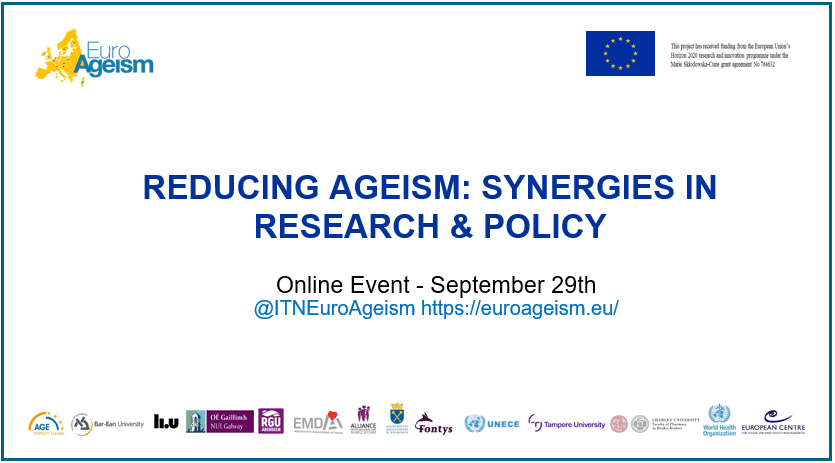Last September, the online policy event organised as part of the EuroAgeism project explored the different forms of ageism and strategies to combat it. The event presented the outcome of this unique multi-disciplinary, multi-sectorial project on ageism and how these lessons can be applied in future research, policy and practice.
Discriminatory homogenization
Already at the beginning of the Covid 19 pandemic, civil society and the research communities pointed out the potentially negative impact of some pandemic policies and discussions for older people due to their ageist nature. In particular, attention was drawn to the homogenisation and stigmatisation of older people, for example through „self-isolation” or “cocooning” policies based on chronological age. Likewise, it was criticised that older people were often the ones blamed for the shutdown of social life, even if only implicitly. With almost two years of the pandemic elapsed, empirical research is now increasingly confirming these warnings and criticisms and the experiences and voices of older people are coming to the fore. The ‘EuroAgeism’ project also explored older persons’ subjective experiences and perceptions of ageism arising from COVID-19-related policies and discourses and the implications of these experiences for personal well-being of older adults. The result of this study show that older persons perceived and encountered three specific forms of discriminatory homogenization during the pandemic, namely stigmatization, paternalism, and scapegoating.
Negative framing
Furthermore, and despite any good-natured sentiment of protection that may underly certain measures (e.g., cocooning policies or dedicated supermarket slots), many of the older participants considered them to undermine older adults’ societal image by framing them as vulnerable and frail, not capable of independent self-care, and as one of the main groups to blame for the consequences of the crisis. Thus, it can be concluded that some of the COVID-19-related policies and discourses reinforced more traditional and negative stereotypes and ideas about ageing and older age and thereby challenged the societal image of older adults. Consequently, if policy policymakers and legislators want to avoid these forms of discrimination in terms of future (crisis) policy, they need to become aware of this kind of negative framing.







